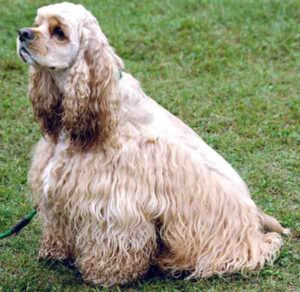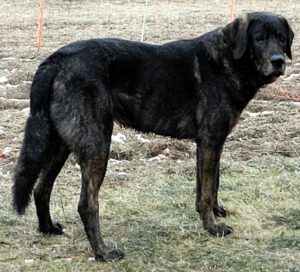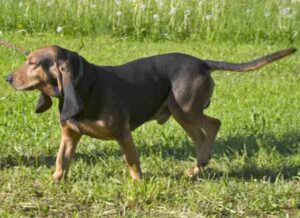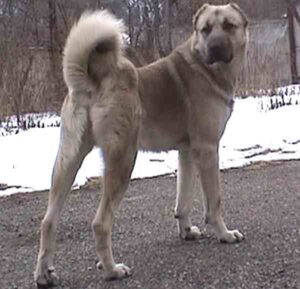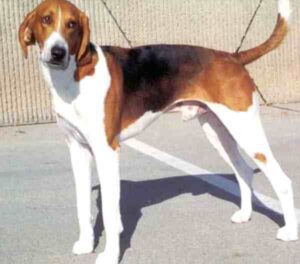There are many reasons why someone might want to have a farm dog. Some owners are thinking about such a pet as help with the range of tasks. Others simply enjoy having a dog around them.
Some benefits of having a dog on the farm include:
- 他们可以作为忠诚和保护警卫对nst predators and intruders.
- Dogs can help herd livestock.
- These pets can be trained to perform various tasks such as fetching tools or fetching livestock.
- Farm dogs can provide companionship and emotional support too.
Therefore, if you decided to get a furry friend on your farm, you need to take care of everything, such as his breed, health, the place of the rest, etc.
The breed of your new farm member
When we talk about a farm dog, we mean a dog that is used for agricultural purposes and the defense of property. We are talking about a versatile type of dog and this is why many breeds can be considered a farm dog.
One of the most suitable for this purpose is theCane Corso。The Cane Corso is a large Italian Molosser, which is closely related to the Neapolitan Mastiff. In its native country, it is considered a working dog, used for tasks such as cattle droving, guard duty, and hunting.

The Cane Corso has a short, stiff coat that is easy to care for. It comes in a variety of colors, including black, blue, brindle, fawn, and red. This breed is not for everyone, as it can be quite stubborn and strong-willed. However, if you are looking for a loyal and protective companion, the Cane Corso may be the right dog for you.
Another famous breed for work on the farm is theAnatolian Shepherd。安那托利亚牧羊犬是一个大型的、崎岖的狗breed originating from the Anatolian Plateau of central Turkey. The Anatolian shepherd is a faithful, defensive breed that makes an excellent farm dog. They are gentle with children and other animals but can be wary of strangers.
The last, but not the worst breed suggestion isCatahoula Leopard Dog。The Catahoula is a working dog with an unusual range of talents. It is usually used as a stock dog, hunting companion, and as a watchdog. They are popular because of their webbed feet, which help them move through marshy areas and keep their footing on slippery surfaces. They are also known for their “crack” or “glass” eye, which is usually blue or green.
Farm dog socialization
From an early age, it is important to expose your farm dog to as many different people, animals, and experiences as possible. This will help them to become well-rounded and confident adults.
Some ideas for socialization experiences include:
- Visits to the vet and groomer;
- Meeting new people at the park or on walks;
- Staying overnight at a friend’s house;
- Attending dog training classes;
- Exposing them to different types of animals;
- Going for car rides
As your farm dog gets older, continue to provide them with new and interesting experiences. This will help to keep their minds active and prevent boredom.
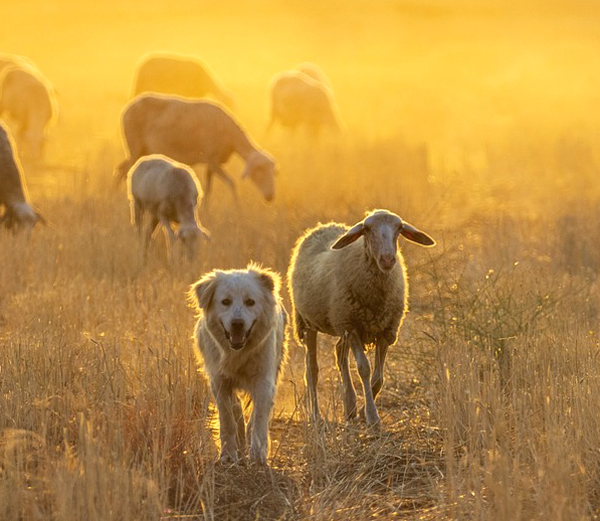
If you have any concerns about your dog’s socialization, talk to your veterinarian. They can offer advice and resources to help you out.
The care of your farm dog
When it comes to taking care of your farm dog, there are a few things you need to keep in mind. First, make sure they have plenty of fresh water to drink.
Second, provide them with a nutritious diet that includes plenty of protein and fat suitable for their size and age. Third, make sure they have a comfortable place to sleep and relax.
Finally, give them plenty of exercises to keep them healthy and happy. It is also enough to brush it weekly and to bathe it only when necessary.
However, one thing you should pay attention to is what chemicals and products you use around them, as many can be toxic to dogs.
The health of your four-legged friend
The health of a farm dog is good if it is fed a balanced diet (check different types of food, which is allowed or forbidden here) and if it is given the opportunity to exercise regularly.
There is no specific vaccination schedule for farm dog breeds, as each dog’s needs will vary depending on factors such as age, health, and lifestyle. However, all dogs should be vaccinated against the core diseases of rabies, distemper, hepatitis, and parvovirus. Your veterinarian can help you create a customized vaccination schedule for your farm dog based on the needs, breed, and environment.

It’s also better to think about extreme situations which could happen. In the case of immediate help needed, you may considerinstant insurance for pets, as sometimes dogs like any other animal or person are injured.
Training of a farm dog
There is no one-size-fits-all answer to this question, as the best way to train your working farm dog will vary depending on the specific tasks that you will be asking them to perform, and on your dog’s individual personality and preferences. However, here are five general tips to help you get started:
- Start with the basics.Make sure that your dog knows the basic commands (sit, stay, come, down, etc.) before you start asking them to do anything more complicated. This will help to ensure that they are paying attention to you and will make it easier to get them to perform more complex tasks later on.
- Be consistent.When you are training your dog, it is important to be consistent in your commands and in the way that you reward them. If you are constantly changing things, it will only confuse your dog and make it more difficult for them to learn.
- Be patient.Dogs learn at their own pace, so it is important to be patient when training them. If you get frustrated or try to rush things, it will only make the process harder for both of you.
- Use positive reinforcement.Dogs respond best to positive reinforcement, so make sure to praise them and give them treats when they do something right. This will help to encourage them to keep up the good work.
- Keep it fun.If your dog is having fun while they are being trained, it will be more likely to want to do it. Make sure to mix things up and keep your sessions interesting, so that your dog does not get bored.
Another important question is how to keep your farm dog from roaming. Some possible methods include:
- Fencing in the property
- Training the dog to stay on the property
- Using a leash or tie-out when the dog is outside
- Keeping the dog inside when not supervised
- Making an ID tag for finding your friend faster if something happens. This should contain the owner’s and vet’s personal details.
Farm Dog Safety Tips
Yes, farm dogs are generally safe. However, there are some health and safety concerns that you should be aware of. Farm dogs may be exposed to harmful chemicals and pesticides, which can cause health problems. They may also be at risk of injury from farm equipment or other animals.

Be aware of the next rules to keep your dog healthy and safe:
- Keep an eye on your dog when they are outside.
- Be aware of what your dog is sniffing around and investigate anything that might be harmful.
- Do not allow your dog to chase or harass farm animals.
- If you have a pool, make sure your dog knows how to get out and keep an eye on them while they are swimming.
- Be cautious of snakes and other wildlife that might be around.
- Keep an eye on the weather and bring your dog inside if it gets too hot or cold.
- Be aware of the signs of aggression in both dogs and farm animals. If either one appears to be getting aggressive, remove them from the situation immediately.
Choosing Your Farm Dog Name
The most interesting part is deciding how to name your new farm member. When choosing a farm dog name, think about what kind of dog you have and what the name means to you.
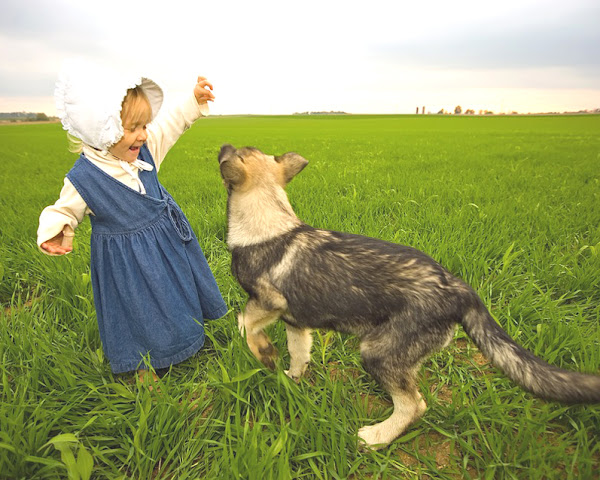
If you have a herding dog, you might want to choose a name like “Bella” or “Cutter.” If you have a hunting dog, you might want to choose a name like “Hunter” or “Duke.” If you have a farm dog that does a little bit of everything, you might want to choose a name like “Molly” or “Jake.”
Conclusion
There is no definitive answer when it comes to whether or not it is better to have a farmdogor not. The pros and cons of each situation need to be considered carefully before a decision is made. Ultimately, it is up to the individual farmer to decide what is best for their farm and their lifestyle.
